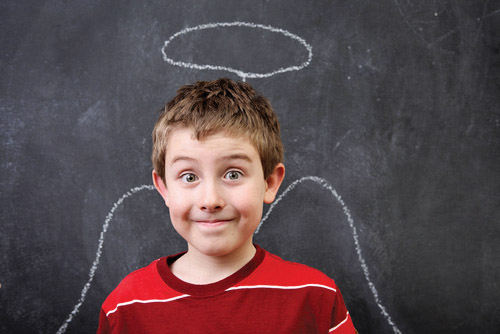
Parshat Toldot
“ויאהב יצחק את עשו כי ציד בפיו ורבקה אהבת את יעקב”
Many commentaries discuss at length the parenting and educational styles of the Avot and Imahot, and the Torah surely gives us many opportunities to extract the plethora of lessons throughout their experiences in these parshiyot. One of the classic, seemingly diverse approaches we find is elaborated upon in this week’s parsha. While the Torah relates that Yitzchak loved Esav, we are told that Rivkah loved Yaakov. Although we can well imagine that the Avot and Imahot did not play favorites and that their every word and action in raising their two very different children were heavily weighed and carefully chosen, it bears attention nonetheless.
Is it possible that Yitzchak was fooled by the false piety of Esav? (See Rashi)
Why does the Torah offer a reason for Yitzchak’s love for Esav (because he fed him), while it gives no reason for Rivkah’s love for Yaakov?
In truth, we must conclude that both Yitzchak and Rivkah knew quite well that Yaakov was the righteous one who was destined to generate the future of klal Yisrael. However, just as Avraham was initially concerned with sending Yishmael away from home, Yitzchak was likewise nervous about the path of life that awaited Esav. While it was easy to find virtue in Yaakov, Esav was far more complicated. Chazal offer several details as to the depth of sin Esav had descended, but perhaps Yitzchak wished to highlight some redeeming quality in the hope that Esav might latch onto it and improve his wicked ways. Therefore, he found one measure Esav was righteously committed to, kibbud av v’em, honed in on that singular characteristic, and demonstrated his love for his eldest son due to that lone feature.
While in the long run this did not yield the results he had hoped for, the message is clear nevertheless. Rather than subject himself to the thought that his son was too foregone, he was compelled to harness his love in a positive fashion, and he surely shared that love with Esav. However a failed attempt it might have seemed, it was ultimately not a failure at all. From Esav’s progeny came Amalek, and many generations beyond that, Haman; each carried this sole quality that Yitzchak recognized and praised. While Amon and Moav may never enter our people, Amalek can. Under certain circumstances, they are welcomed into klal Yisrael. And though Haman was hanged for his desire to annihilate our people, his great-grandchildren learned Torah in Bnei Brak (Masechet Gittin).
Yitzchak’s efforts were not in vain. Amid the vast and villainous sins of Esav, his beloved, compassionate father found a single vestige of goodness and used it as a springboard for growth that was destined to shift some of the most unlikely characters to achieve greatness. He loved Esav because he was a good hunter. And while hunting might have been the farthest trade from the peaceful words of Torah study uttered from the lips of Yaakov, it was a trade he had mastered and used for some remote benefit.
As educators and parents, it is easy to see the goodness in the calm child. In the giving child. In the go-lucky, happy, always-cheerful and well-mannered child. Rivkah loved Yaakov. That is obvious and understandable. It is likewise easy for such children to see the goodness in themselves. Yet, the child who struggles, the child who slowly drifts away from the beaten, straight path, and the child who engages in activities and behaviors that are to be discouraged and perhaps even scorned—where will he or she find the good in themselves if not from us? If we do not seek and find the virtues in them, to support them, to lift them up and to ultimately bring them back to their intended and truly deserved roles in life, who will?
It is our holy duty and sacred mission to find the good where there is bad, the light where there is darkness, and the hope where there is despair so that we can channel the potential in each and every single child.
Thankfully, we have many who emulate Rivkah in nurturing and protecting the Yaakovs of the world, and they are to be commended. But if we do not serve the role of Yitzchak, who will?
By Rabbi Avi Bernstein
Rabbi Avi Bernstein is the RYNJ dean of students.











